We all agree certain things – like rock concerts, jack hammers and motorcycles – are loud and could damage our hearing, but we may not realize that listening to music or podcasts with our earbuds is causing any damage, but it’s very possible that repeated exposure to what we think isn’t very loud, is actually causing damage to our ears. The same is true when it comes to music lessons.
Due to the negative connotation of “noise”, we don’t like to consider music as such; however, in the context of this article, that’s exactly what it is. This means that when taking music lessons or practicing at home – especially with instruments like electric guitar and drums, but also with piano and violin, for example, we have to be aware of the noise levels.
You’re never too young, or too old, to start protecting your hearing. Whether you’re a child just starting lessons, a teenager going to concerts, or a professional who’s been performing for years, protecting your hearing is essential.
How we hear:
- Sound goes into your ear as soundwaves.
- The soundwaves travel down your ear canal and make your eardrum vibrate.
- The vibration of the eardrum makes the three tiny middle ear bones move.
- These bones amplify the sound vibrations an send them to your inner ear, or cochlea, which is filled with fluid and has sensory receptors, tiny hair cells called cilia, on the inside.
- The vibrations cause the fluid and cilia to move. The cilia change the vibrations into electrical signals that travel to your brain.
- Your brain translates the electrical signals into sounds you understand.
- Only healthy cilia can send the electrical signals to your brain.
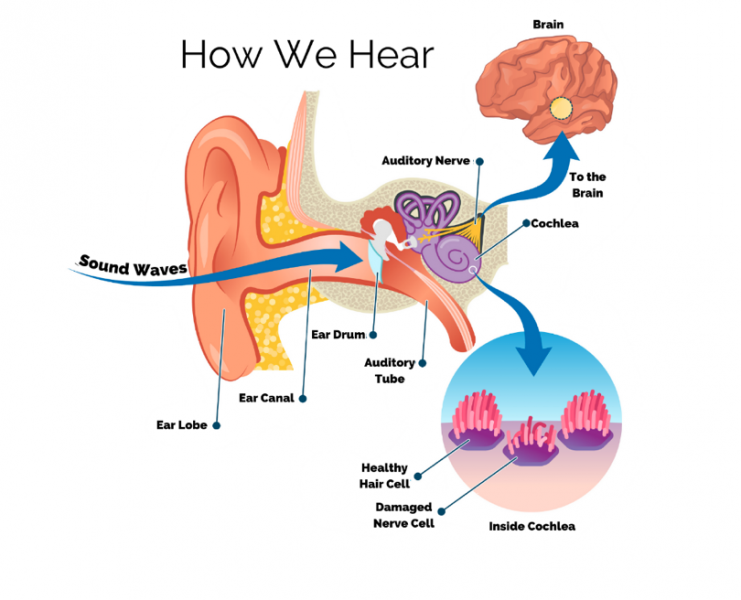
Causes of hearing loss:
Prolonged and repeated exposure to noise permanently damages the cilia, meaning that they can no longer send the signals to your brain. Noise-induced hearing loss is usually slow and painless. But, it is permanent.
Factors that affect NIHL:
- How loud the noise is
- How close you are to the noise.
- How long you are exposed to the noise.
- How often you are exposed to the noise.
Even normal everyday activities and objects can cause damage to your ears – especially for young children. Examples include, but are not limited to:
- Playing an instrument during a music lesson or at home practicing (This isn’t just in a rock band situation; solo drummers, (electric) guitarists, violinists, pianists are included.)
- Home use appliances and equipment – blender, hair dryer, lawn mower, leaf blower
- Traffic – yes, even repeated exposure to regular everyday traffic can affect hearing
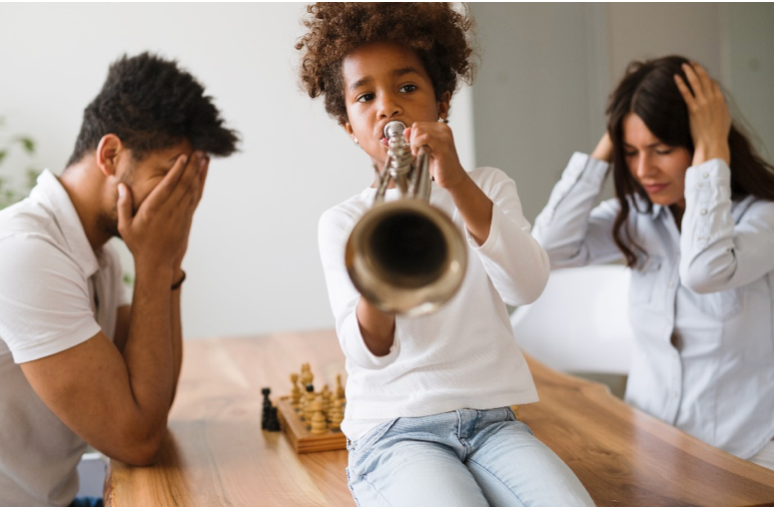
Signs That A Noise Is Loud Enough to Damage Hearing:
You probably don’t always carry a sound level meter with you. So how can you know if noises are too loud? Here are some signs:
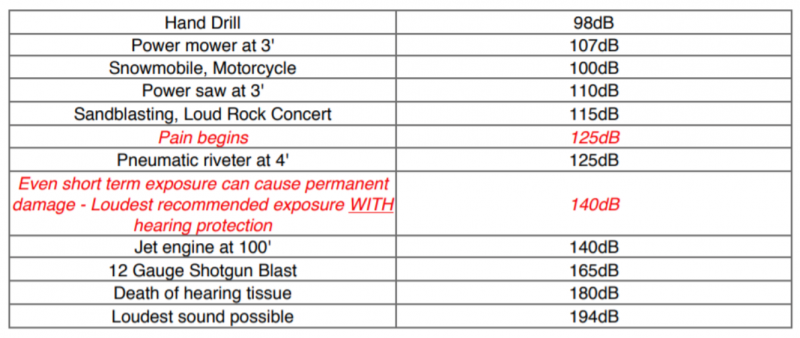
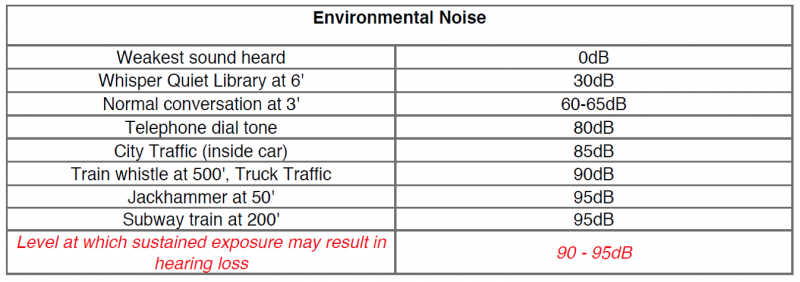
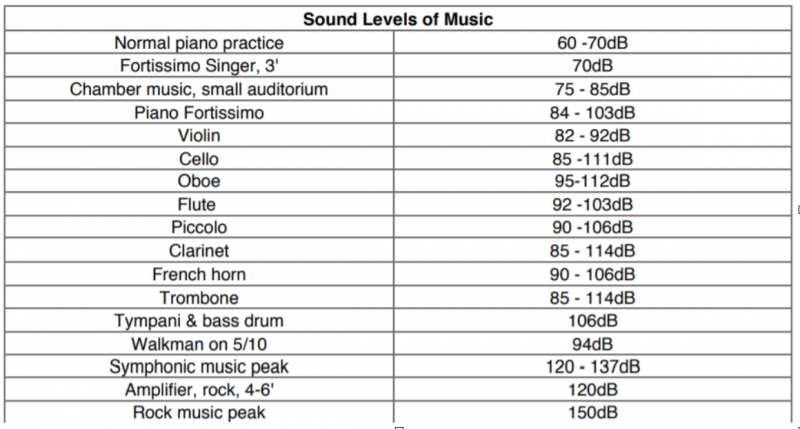
Signs and symptoms of hearing loss may include:
- Muffling of speech and other sounds
- Difficulty understanding words, especially against background noise or in a crowd
- Trouble hearing consonants
- Frequently asking others to speak more slowly, clearly and loudly
- Needing to turn up the volume of the television or radio
- Withdrawal from conversations
- Avoidance of some social settings
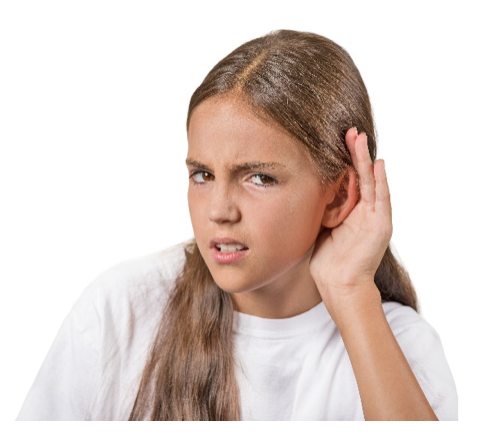
Harmful effects of hearing loss:
- Difficulty communicating
- Increased anxiety
- Career loss
- Social isolation
- Depression
Ways to protect your hearing
- Avoid loud noises as much as possible.
- Wear ear protection whenever you’ll be exposed to loud noises.
- Use in ear monitors in band situations
- When using earbuds and headphones:
- turn the volume up to a level where you can hear the music/podcast/movie comfortably, but no higher.
- Listen for no more than an hour at a time.
- Take breaks from listening every hour.
- Move away from sources of loud noise.
- Give your hearing a day to recover after exposure to loud noises.
Types of hearing protection
- Disposable foam earplugs:
- These are the most basic way to protect your hearing.
- Can be purchased almost anywhere and are cheap…so no excuses!
- Reusable soft plastic or rubber earplugs
- A wide variety of these is available, some made specifically for musicians. These protect the ears from loud noises, while preserving sound quality.
- Custom earplugs for musicians
- These tend to be expensive, but they
- Are even better at preserving sound quality
- Fit better
- Provide better protection
- Are comfortable and reusable
Just a few well-known musicians with noise induced hearing loss:
Pete Townsend and Roger Daltrey – The Who
Eric Clapton
Will.i.am
Neil Young
Sting
James Hetfield and Lars Ulrich – Metallica
Chris Martin – Cold Play
Phil Collins – Genesis – stopped playing drums in 2011 because of hearing loss
Hearing is important for your enjoyment of all the good things in life, including music.
Hearing loss is permanent.
Please protect your hearing.
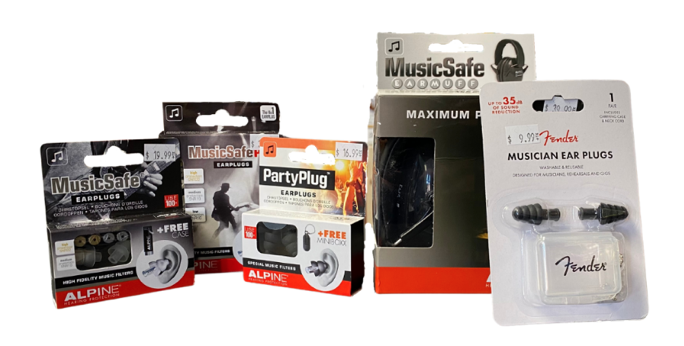
Special thanks to Christine Cameron at Origin Road for writing this article and sharing this valuable information.